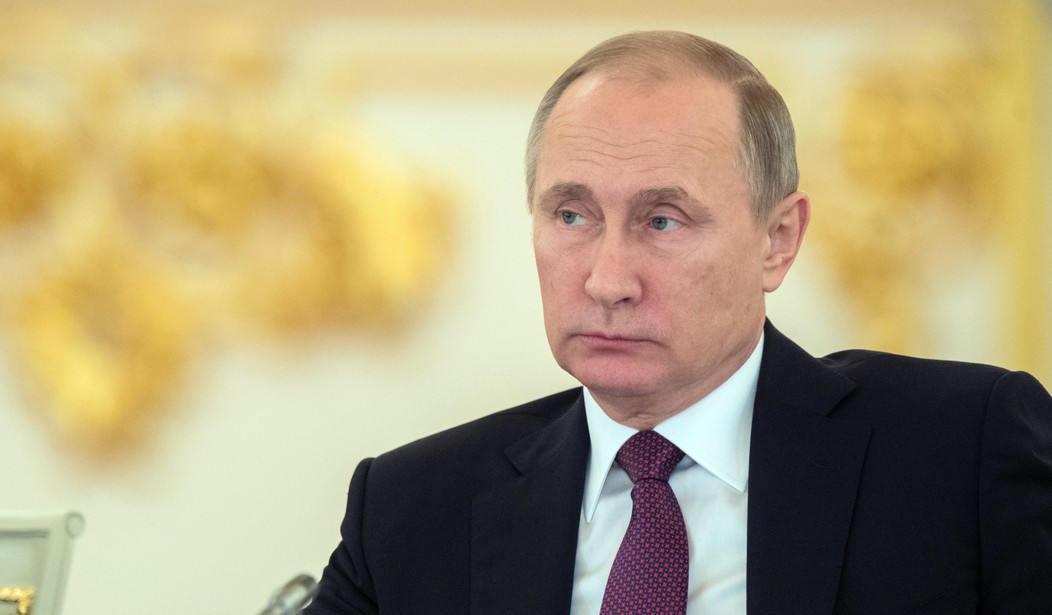On Saturday, Russian President Vladimir Putin claimed to have convinced President Donald Trump that Russia did not meddle in the 2016 election, despite the concerns of the U.S. intelligence community. A Trump official disputed this report. Putin’s remarks followed the first meeting between the two presidents on Friday, at the G20 meeting.
“I repeat, he asked a lot of questions on this matter,” Putin said at a press conference, CNN reported. “I answered as many as I could answer. I think he took it into consideration and agreed with it. But you should ask him what his opinion is on that.”
Putin verified the report of Secretary of State Rex Tillerson that Trump pressed him on the issue of election meddling. Trump “devoted a lot of time to this issue” in their meeting, which went on for over two hours Friday, the Russian president said. “Our position is well-known, and I repeated it — there is no basis to think that Russia interfered in the election process. What’s important is that we agreed that the uncertainty on these matters cannot exist, especially in the future.”
The Russian president also reported that the leaders agreed to set up a group of experts “to find a way to control the cyberspace security together, ensure strict compliance with the international law in this area, [and] prevent interference in the domestic affairs of foreign countries.”
Putin added that during the meeting a “personal relationship” between him and Trump was “established.”
“TV Trump is very different from the real person, he is absolutely specific, absolutely adequate in his perception of the dialogue partner, he analyzes things quickly, replies to the raised questions or new elements of the conversation,” the Russian president said. “So I think if our future relations will unfold the same way as our meeting yesterday, there is every reason to believe that we can restore, at least partially, the level of cooperation we need.”
This positive take-away echoed Trump’s rosy prediction of “very positive things happening” before the meeting. But the immediate aftermath sparked tension.
Right after the two presidents met, Russian Foreign Minister Sergey Lavrov said Trump accepted Putin’s assurances that there was no Russian involvement in the 2016 election. A senior Trump administration official told CNN that Trump did not accept Putin’s claim, however.
According to Tillerson, Trump opened the meeting by “raising the concerns of the American people regarding Russian interference in the 2016 election.” But when Putin asked for “proof and evidence” Russia was involved, Trump did not produce any.
“They had a very robust and lengthy exchange on the subject,” the secretary of State said. “The president pressed President Putin on more than one occasion regarding Russian involvement. President Putin denied such involvement, as I think he has in the past.”
Stephen F. Hayes, editor in chief at The Weekly Standard, attacked Trump for caving to the Russian president. He criticized the president for pursuing “a framework” to deal with cyberthreats together, rather than sanctions for Russia’s alleged cyber attacks. “Not consequences? Not sanctions? Not even the threat of retaliation from the United States?” he asked.
Hayes also attacked Tillerson’s characterization of the Syria agreement. The secretary of State said Russian and American “objectives are exactly the same.” But Russia supports the Assad regime, and the U.S. has called for regime change.
When President Trump carried out airstrikes against Shayrat Air Base in April, he was responding to Assad’s use of chemical weapons against his own people. That night, Hayes reported, U.S. officials told him that Russia knew about the chemical attacks in advance. Another official told the Associated Press that a Russian-made fighter jet bombed the hospital treating victims of the chemical attack, in an effort to cover it up.
The countries also differ in the way they treat journalists and the media. While Trump and Putin shared a joke about the U.S. media at the G20 summit, only Russia has silenced the press and murdered at least 34 journalists since 2000. Trump has only mocked the media as “fake news.”
It seems Putin’s suggestion that Trump accepted his denial might also be “fake news,” but the two presidents did seem to agree on many things. As the Trump-Russia election collusion narrative dies a long, slow death, it might be replaced by a new version. Reporters are suggesting Putin has gotten the better of Trump, and it’s hard to disagree with that assessment.








Join the conversation as a VIP Member